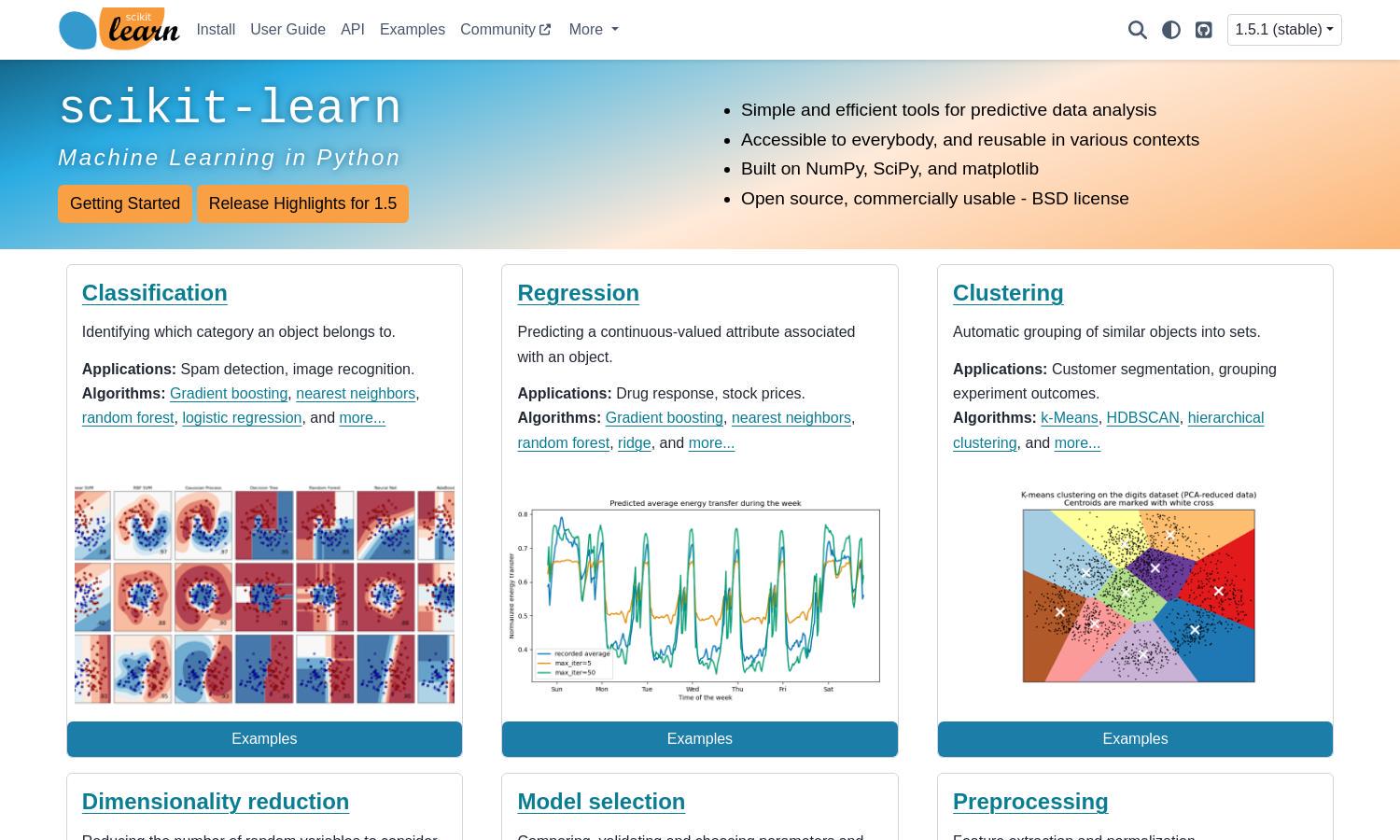scikit-learn

About scikit-learn
scikit-learn is an innovative Python library that simplifies machine learning for users at all skill levels. It provides various algorithms for classification, regression, and clustering, making it an essential tool for data scientists and researchers. By leveraging scikit-learn, users gain insights through efficient data analysis and predictive modeling.
scikit-learn is free and open-source. There are no subscription tiers; instead, users can directly download the library, ensuring accessibility for everyone. Being open-source allows users to contribute and enhance the platform while enjoying all features without financial barriers or memberships.
The user interface of scikit-learn is designed for ease of use and efficiency. Its clean layout offers seamless navigation through documentation, tutorials, and API references, enabling users to quickly find what they need. This intuitive design simplifies the machine learning process, making scikit-learn accessible for all.
How scikit-learn works
Users interact with scikit-learn by first installing the library using pip. After installation, they can access numerous algorithms for different machine learning tasks. The user navigates through comprehensive documentation, examples, and API references to implement algorithms effectively. With easy-to-understand syntax and examples, scikit-learn facilitates a smooth learning experience.
Key Features for scikit-learn
Comprehensive algorithm library
Scikit-learn features a comprehensive library of algorithms for various machine learning tasks, including classification, regression, and clustering. This unique characteristic empowers users to select the most suitable algorithm for their data analysis needs, enhancing their capability to derive insights from complex datasets with ease.
User-friendly documentation
Scikit-learn offers extensive and user-friendly documentation, making it accessible for both beginners and experienced practitioners. This key feature ensures users can quickly grasp concepts, follow tutorials, and implement machine learning techniques effectively, ultimately enhancing their learning curve and improving their data analysis skills.
Open-source community support
Scikit-learn benefits from robust open-source community support, allowing users to collaborate, share insights, and contribute enhancements. This unique aspect fosters continuous improvement, ensuring that the latest innovations and best practices in machine learning are readily available, making scikit-learn even more powerful and user-focused.
You may also like:








